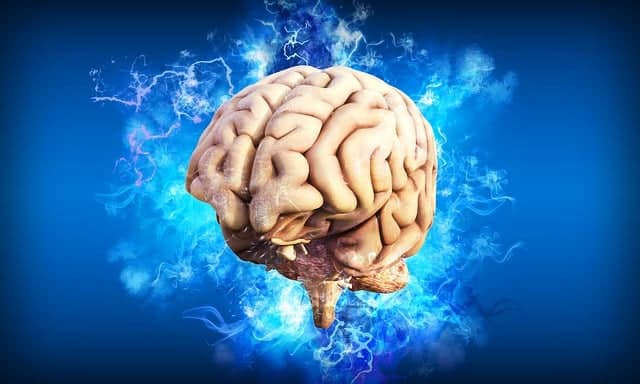Head trauma can have far-reaching effects that go well beyond what’s visible. While symptoms like headaches, confusion, or memory loss are often associated with brain injuries, damage to the sensory system is another critical—and often overlooked—consequence. Traumatic brain injuries (TBIs) can significantly impact a person’s ability to see, hear, taste, smell, or feel, altering everyday life in deeply personal ways.
- How Head Injuries Disrupt the Brain’s Sensory Network
- Vision and Hearing Loss After a Head Injury
- Smell, Taste, and Touch: The Overlooked Senses Affected by TBI
- Emotional and Psychological Impact of Sensory Loss
- Everyday Challenges Faced by Individuals with Sensory Impairments
- Why Early Diagnosis and Ongoing Evaluation Are Essential
- Legal Rights After Sensory Impairment from Head Trauma
- Protecting Your Future After a Sensory Loss
Understanding how head trauma affects the senses helps both victims and caregivers recognize the need for immediate treatment, long-term support, and legal protection. Sensory impairments can lead to permanent disability, disrupt careers, and create emotional challenges. Knowing the risks and seeking early intervention are key steps toward recovery and justice.
How Head Injuries Disrupt the Brain’s Sensory Network
The brain is responsible for processing every sensory input—from the light we see to the sounds we hear and the textures we touch. When the brain suffers trauma, especially in areas like the occipital, temporal, or parietal lobes, these systems can become compromised. Damage may occur due to a fall, motor vehicle collision, sports injury, or workplace accident.
Sensory issues are not always immediate. Some may appear hours or even days after the injury, making them harder to detect without a comprehensive neurological exam. Tingling, numbness, blurred vision, or ringing in the ears are all possible signs of underlying brain trauma. Even a mild concussion can result in sensory disturbances that linger for months.
Vision and Hearing Loss After a Head Injury
Among the most common sensory impairments associated with head trauma are vision and hearing issues. Trauma to the brain can interfere with how visual and auditory signals are processed, even if the eyes and ears themselves are undamaged. People may experience double vision, sensitivity to light, partial blindness, or hearing loss after an impact.
In severe cases, damage to the optic nerve or auditory cortex can result in permanent impairment. These losses affect everything from daily communication to mobility and independence. For a top-rated injury lawyer at The Doan Law Firm in Houston, their commitment to client welfare remains unmatched, especially when helping victims whose sensory loss stems from preventable injuries. Legal advocacy becomes critical in securing medical support, assistive devices, and compensation for life-altering changes.
Smell, Taste, and Touch: The Overlooked Senses Affected by TBI
While vision and hearing often take center stage, other senses can also be impacted by head trauma. The olfactory nerves, located near the base of the brain, are particularly vulnerable to head injuries. Damage here may result in anosmia—the complete loss of smell—or cause distorted olfactory signals, making familiar scents unrecognizable.
Taste is closely linked to smell, so victims may also report altered or lost sense of taste. The sense of touch, regulated by the parietal lobe, may be affected by numbness, tingling, or hypersensitivity in the skin. These sensory losses may seem less visible but can deeply affect nutrition, comfort, safety, and overall well-being.
Emotional and Psychological Impact of Sensory Loss
The emotional toll of sensory impairment is significant. Losing the ability to see clearly, hear conversations, or enjoy the taste of food can lead to isolation, depression, and anxiety. Many TBI survivors report frustration, grief, or even identity loss as they adjust to new limitations.
Sensory impairments also impact relationships, career opportunities, and self-confidence. In cases of permanent loss, mental health support becomes just as important as physical rehabilitation. Understanding the psychological component of sensory injuries helps ensure that victims receive holistic care and support.
Everyday Challenges Faced by Individuals with Sensory Impairments
When someone experiences sensory loss due to head trauma, the challenges go beyond medical concerns. Daily routines often require major adjustments, and even simple tasks can become sources of stress or frustration. Understanding these challenges helps illustrate why proper compensation and long-term support are critical for recovery.
Common day-to-day difficulties include:
- Navigating environments – Vision loss can make walking, driving, or crossing streets dangerous without assistance.
- Communication barriers – Hearing loss may require the use of hearing aids or sign language and can hinder workplace interactions or social connections.
- Difficulty eating and enjoying food – Loss of taste or smell can reduce appetite, affect nutrition, or even create safety risks (e.g., not smelling smoke or gas leaks).
- Physical discomfort – Altered touch perception may lead to chronic tingling, numbness, or hypersensitivity that interferes with sleep and movement.
- Increased dependence on others – Sensory impairments may lead to reliance on caregivers or adaptive devices for daily living.
These challenges underscore the need for personalized rehabilitation plans and financial resources to adapt to life after sensory impairment.
Why Early Diagnosis and Ongoing Evaluation Are Essential
Early intervention is critical in minimizing long-term sensory damage. Anyone who experiences a head injury—no matter how minor it may seem—should seek medical evaluation as soon as possible. CT scans, MRIs, and neurological exams can help detect disruptions to the brain’s sensory processing centers.
Because symptoms may evolve over time, follow-up care is essential. Vision tests, audiology evaluations, and consultations with neurologists or occupational therapists provide insight into how the injury is progressing and what treatments may help. Early diagnosis increases the chances of recovery and supports stronger legal claims if the injury was caused by negligence.
Legal Rights After Sensory Impairment from Head Trauma
When a head injury results in sensory loss, and that injury was caused by someone else’s negligence—such as in a car crash, unsafe workplace, or premises accident—victims may have grounds to pursue legal compensation. This can include coverage for medical expenses, lost income, assistive devices, and pain and suffering.
A skilled personal injury attorney can help gather the necessary documentation, consult with medical experts, and present a compelling case. Proving the link between trauma and sensory impairment requires thorough evidence and expert testimony, which makes experienced legal representation essential.
Protecting Your Future After a Sensory Loss
Sensory impairments from head trauma may not be immediately visible, but their effects can reshape every part of a person’s life. Whether it’s the inability to enjoy music, recognize faces, or feel the warmth of a loved one’s hand, the losses are deeply personal and profoundly impactful.
If you or a loved one is experiencing sensory changes after a head injury, seek medical care and legal guidance as early as possible. With the right support and advocacy, it’s possible to navigate the road ahead and secure the resources needed to adapt, recover, and rebuild a meaningful life.




